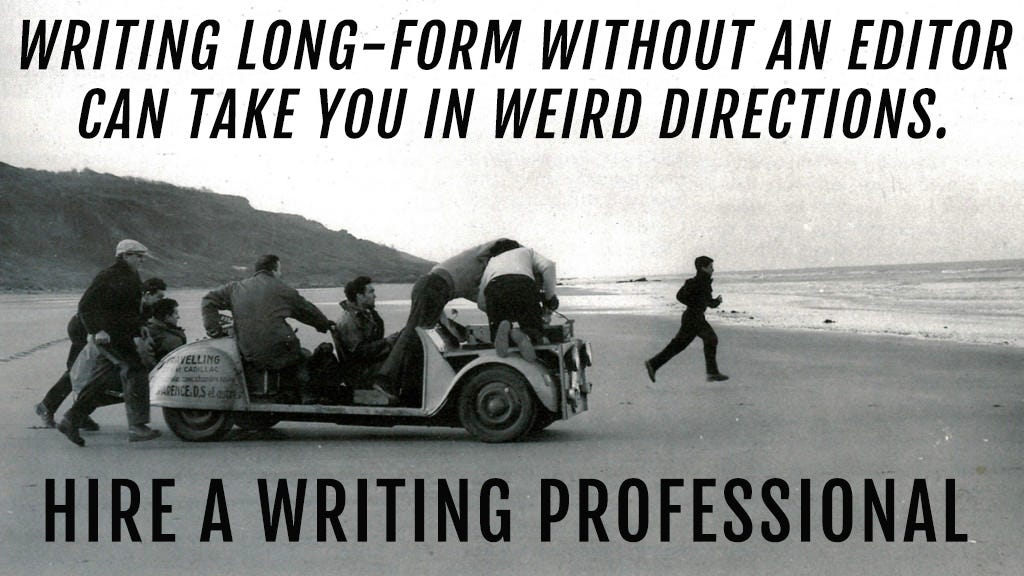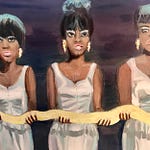Back in the late 1990’s, I had a truly fabulous opportunity. After commissioning me to write a short story for his great magazine (Zoetrope All Story) and a screenplay based on that short story (which never got made), Francis Ford Coppola made me an offer I could not refuse: to collaborate one-on-one with him writing a screenplay.
This was obviously a big, big, fucking deal for me, Francis Ford Coppola being one of my all-time heroes and an immortal titan in the film industry.
I was beside myself with anticipation. What kind of hardcore, genre-busting story were we going to take on? Some classic on the psychological casualties of war? A heart-stopping investigation of the enzymes of the criminal underground?
“We’re going to remake ‘Gidget’ as a musical vehicle for John Travolta!” Francis thundered.
“Hooray!” I said as convincingly as possible.
And so it began.
Work on “Franzie, Moondoggie and the Big Kahuna” (his title, not mine) began in earnest. I would pound away on it at home, and the two of us would meet periodically in Francis’s sprawling permanent residence at the Sherry-Netherland hotel, overlooking Central Park.
Francis Ford Coppola is nothing if not lovely, gentlemanly and avuncular. The vibe was entirely friendly and professional.
“Eat!” He would bellow at me, as soon as I came in, leading me to a table with a massive Italian feast on it that he’d made himself — platters full of cured meats, roasted vegetables, and giant baked zitis full of sausages and ricotta he’d squeezed with his own fingers.
(Francis was quite a round fellow in those days; likely because he was such a formidable chef. )
I wanted to give the script some veritas, so I brushed up on surfer slang from the 1960’s and threw a lot of ‘ho-daddies’ and ‘hang tens’ into the dialogue.
The script was gleaned from the Gidget adventures of yesteryear. A young, short girl (girl midget = Gidget!) comes of age in the surfer subculture of Malibu, in the sixties, with a little help from the best surfer on the beach: the Big Kahoona, the role designated for John Travolta. The script included a lot of musical numbers, penned by the guy who had written the music for “Grease.”
The writing went on for a few months, and finally, Francis and I were to fly out to Hollywood and pitch the idea to Paramount, and what was their current CEO-cum-head gorgon-in-chief, Sherry Lansing.
I’d never had such a high-profile meeting before. Being a fashionista, I had already had a writerly tweed suit made, so I decided that creating a lasting first impression was all about the shoes. After many arduous hours searching for the correct footwear in stores, I finally settled on a pair of leopard-skin platform booties, just to really hammer home my image as a Serious Writer.
I flew business class to LA and was put up in a fairly decent Hollywood hotel. The next day, a car arrived and brought me to a small pink stucco bungalow somewhere in a corner of the Paramount lot. The day was a scorcher. Francis, standing roundly in a black suit, white shirt and tie, was already visibly sweating. I abruptly realized how ridiculous my tweed outfit was in 90+ degree heat, especially when we stepped inside the bungalow and realized that the only thing resembling air-conditioning was a small, oscillating white plastic fan. I was introduced to the man sitting at the piano, who had written Grease.
“You’re going to sing with me while you accompany me today, right?” Francis asked the pianist, jovially.
The color, which was already drained from the sweating pianist’s face, suddenly drained even harder — he looked as exsanguinated as a Halal chicken.
“But….I’m merely the composer!” The clammy pianist wailed. “I’m…I’m not used to playing in front of actual people at all!”
“You’ll be fine!” Francis trumpeted, slapping him on the shoulder.
I realized this is how people become directors and leaders of men — they command you to do things that you would not normally be capable of doing, and out of a horrible desire not to disappoint the leader, you either pull supernatural action out of yourself or die in the attempt.
Finally, the unsmiling Sherry Lansing came in, mood heavy as a shale barge, with her own private vanguard of nervy-looking secretaries and assistants. Francis greeted her with a blast of positive life energy; she was entirely unresponsive, and took her seat with a kind of grave resolve, like she was about to sit through a three hour seminar on real-estate tax.
Something happens in meetings with grotesquely important people: everyone else in the room becomes psychically attuned to the needs and feelings of the Alpha, which was, in this case, the miserable Sherry Lansing — who had taken one look at my leopardskin platform booties and decided that I was fucking Francis. I could feel the jet-blast of cold disregard emanating from Lansing’s chair pointing straight at me. There was absolutely nothing I could do about it.
I wasn’t sure how the pitch was going to happen, exactly, so I sat in my tweed suit and hooker shoes sweating and smiling idiotically.
“Why do all the characters talk so weirdly?” Lansing asked me, pointedly.
“Oh!” I responded brightly. “It’s written in an ancient patois. I researched sixties slang.”
“An ancient patois?” Lansing repeated with a sneer, like I had just confessed to her that I had recently finished a prison sentence for cannibalism. I watched as her contention that I was banging the boss cemented into her psychic permafrost — I was clearly worthless as a writer, and my shoes told her everything she wanted to know.
Francis suddenly took over with a kind of P.T. Barnum energy, slapping his hands together and swiveling out of the unbearable moment.
He turned to the pianist and told him, “Play the song, and SING, SING!”
This is when things took a turn for the weird. The pianist rolled out an introduction somewhat feebly, and Francis bounced into the center of the room like a superball and began to sing in a loud, open Broadway voice, one of the first songs in the script, which was about Franzie (Gidget) going through puberty and needing a training bra.
The smile on my face grew even bigger and sweat began pouring down my back as I watched in raw disbelief. There he was, the Great Man, hopping and mincing and shimmying about the room, showing off his girlish figure and sweating like a lawn sprinkler while the pianist, who was clearly dying from a combination of embarrassment and situational self-loathing, groaned out remedial harmonies.
It became excruciatingly hard to watch Lansing’s dreadful, immovably pained expression as Francis kept hopping and singing and hopping, as if he was trying to physically lift her mood and defy gravity through raw showmanship. Lansing’s assistants were likewise stone-faced and unfeeling.
Francis really gave the pitch his all. He belted and sashayed his way through most of the songs in the movie, as the pianist plonked and bashed and sweated and died on the spot. Francis finally ended the entire face-crushing experience by dropping to one knee, Al Jolsen’s “Mammy”-style, and delivering enthusiastic jazz hands as the pianist glissando’d his way through a tumultuous outro.
Sherry Lansing did not applaud, nor did her bloodless alien assistants. I thought this the height of coldness.
Lansing was suddenly necessary elsewhere, and the whole bungalow was abruptly vacated. I grabbed Francis’s damp arm once we got outside and told him how amazed I was by his performance, which was not a lie. He had wrung every drop of hot life out of himself — cast it all on the carpet before the disdainful Bitch Goddess Lansing…. and now whatever would be, would be.
I flew back to New York.
About a week later, I got a call from Francis, who told me the project wasn’t a go. “John Travolta wanted twenty-five million to star in it! Can you believe that?”he lamented.
Francis kept working on it, but I eventually got booted off the project for complaining about removing the ancient patois from the dialogue in favor of everyone saying “Dude” and speaking generally like they were in the 1980’s.
But I will never forget watching Francis sing and dance his heart out for that sink-hole of a woman and her crippling self-importance. We all gotta busk in this life, sometimes, and sometimes the audience just su-u-ucks.
Good evening friiieeeends. (Jazz hands!)
Artwork: “Molotov Marilyn,” oil on canvas by Cintra Wilson, 2019.
Contact: cintraw@gmail.com















Share this post